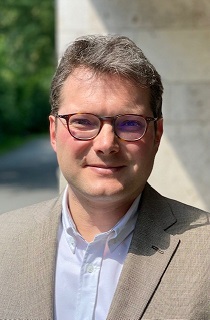Contact
Email:
erpelding@lhlt.mpg.de
Short project description
Conventional accounts of European integration have often insisted on the novelty of the supranational law developed in that context, asserting its ‘sui generis’ character and highlighting its differences to earlier forms of international and regional integration. However, recent scholarship has questioned this view. A growing number of studies have reappraised the intense activity of the League of Nations and related contemporary international institutions, while others have highlighted the relevance of colonialism for the history of European integration.
This project starts from the premise that the League and its broader context not only generated legal discussions about regional integration, but also forms of supranational law and institutions, both in Europe (e.g. Danzig, Saar, Upper Silesia...) and in (semi-)colonial settings (e.g. League mandates, international cities, protectorates...). This hidden heritage would remain relevant after the Second World War, impacting the law of European regional integration both within what would become the EU and the Council of Europe.
The research group’s central aim will be to identify the continuities and discontinuities between this heritage and the law developed within the context of European integration. To do so, it will not only look at the relevant institutions and the norms they generated, but also at the actors that developed and used these norms, whether as legal professionals or as ‘subaltern’ individuals or groups, both in Europe and on its (semi-)colonial peripheries.
Short Bio
Michel Erpelding is Research Group Leader at the Max Planck Institute for Legal History and Legal Theory in Frankfurt, Germany. His work focusses on the history of international and European integration law, with a special interest in their interaction with colonial law and practices. His research group ‘The Hidden Heritage of the European
Union: the Legacy of the Law of the League of Nations’ further explores this theme. It analyses how legal practices developed during the interwar period both in Europe itself and on its colonial peripheries and informed European ‘integration-through-law’ after the Second World War.
Dr Erpelding studied at the Sorbonne Law School (Université Paris 1 Panthéon-Sorbonne), Columbia Law School (New York) and the Institut national des langues et civilisations orientales (Paris). He holds a doctoral degree from the Sorbonne Law School. His doctoral thesis, which addresses the international legal status of slavery and forced labour between 1815 and 1945, won several awards and was published in 2017.
Before joining the MPI for Legal History and Legal Theory, Dr Erpelding worked as Senior Research Fellow at the MPI Luxembourg for Procedural Law and as a Research Scientist at the Faculty of Law, Economics and Finance of the University of Luxembourg, where he was awarded a CORE Junior grant by the Luxembourg National Research Fund.
Dr Erpelding is an associate member of the Institut de recherche en droit international et européen de la Sorbonne (IREDIES). His scientific expertise has been solicited by the Luxembourg National Library, the Luxembourg Chamber of Deputies, and the Special Committee on Belgium’s Colonial Past of the Belgian Chamber of Representatives.
He lectures at the University of Luxembourg and the ESCP Business School on behalf of Sorbonne Law School.


